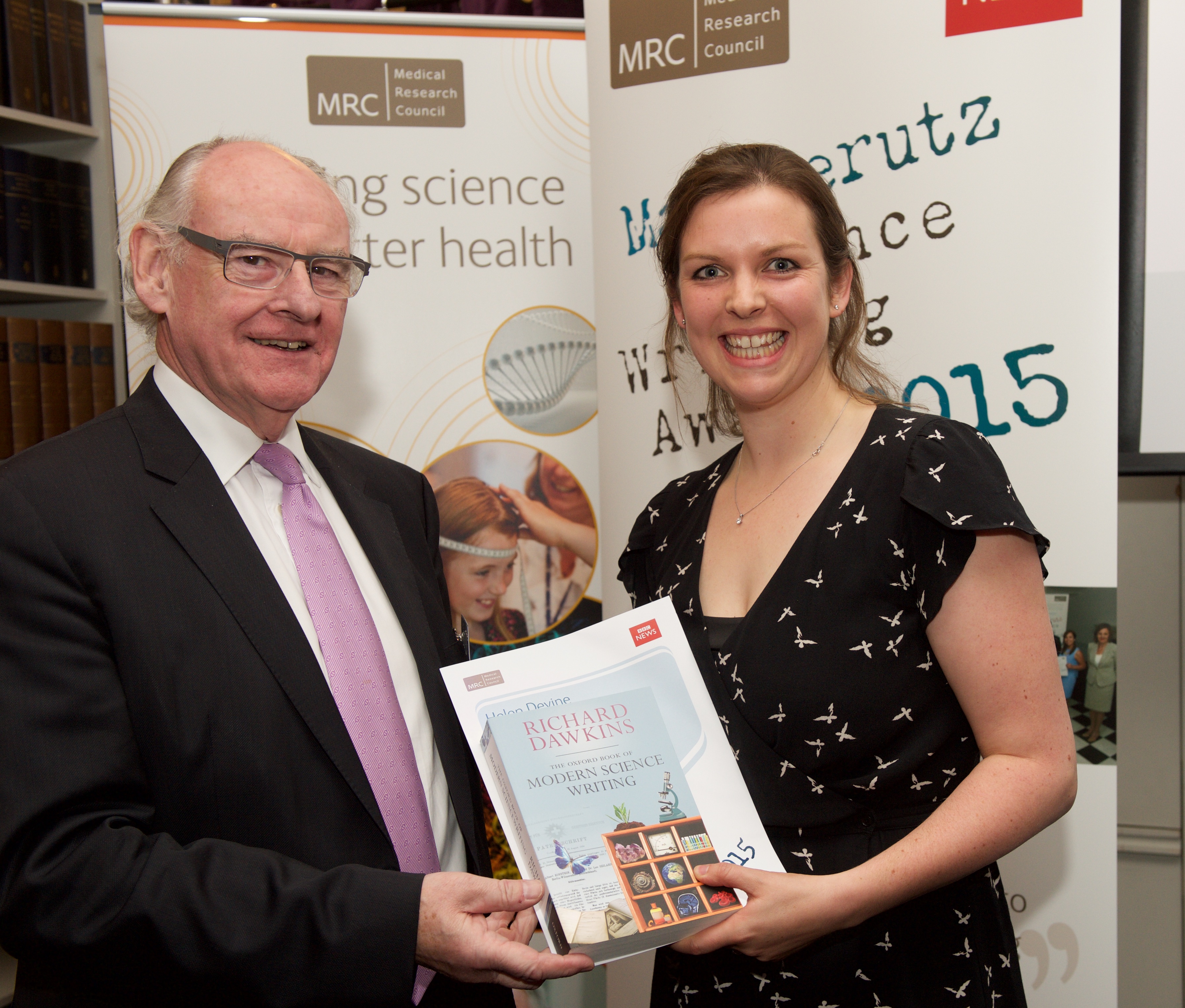
We have seen at first hand how passionate and driven the research team at UCL is. What we didn’t know is that alongside being a hugely talented and dedicated researcher, Helen Devine is also an exceptional poet!
Helen is at the front line in the fight against Kennedy’s Disease, and to further raise awareness, she entered this poem in a Medical Research Council competition that sought creative writing from researchers that told readers “Why does my research matter?” We at Kennedy’s Disease UK were delighted that Helen was one of the 14 shortlisted finalists this year. Sadly she didn’t win but we feel she’s a winner with this great explanation of Kennedy’s Disease and the vital research she and the team are carrying out at University College London (UCL).
The Max Perutz Science Writing Award aims to encourage and recognise outstanding written communication among MRC PhD students. The annual competition challenges entrants to write an 800-word article for the general public answering the question: ‘Why does my research matter?’
The award is named after the eminent scientist and Nobel Laureate Dr Max Perutz, an accomplished and natural communicator who died in 2002. Since the competition began in 1998, hundreds of MRC researchers have submitted entries and taken their first steps in communicating their research to the public.
This is Helen’s fantastic entry.
An Ode to the Androgen Receptor
Neurodegenerative diseases
Occur when nerve cells die
We certainly know that it happens
But we aren’t quite sure how or why.
Parkinson’s Disease would be easy
And Alzheimers or Huntingtons’s too
They’re probably near the top of your list
If I asked you to name me a few.
But Spinal Bulbar Muscular Atrophy?
Not heard of it before?
There’s something special about it,
Let me tell you a little bit more.
Weakness in the arms and legs
Make it tricky for patients to walk
Weakness in the face and tongue
Make it hard to swallow and to talk.
The fault’s in the Androgen Receptor
A particular genetic mutation
Male patients have the disease
Women pass it to the next generation.
When the receptor binds testosterone
The troubles really start
Patients get weakness, infertility
And problems in the heart.
The disease is slowly progressive
With no treatment and no cure
I’m hoping that might change
If I can understand it a little bit more.
So I’m going on a journey
To find out why these cells die
I am searching for the pathways
Using microscopes and dyes.
The very first step is to find a way
To make a good human model
Studies from other cells and mice
May not show the real disease problem.
Induced pluripotent stem cells
Are an exciting new innovation
Stem cells from patient skin cells
Have the androgen receptor mutation.
Motor nerves from stem cells
I grow them up in a dish
And once they are fully grown
I can study them with relish.
Stress, transport, mitochondria
Possible avenues to pursue
In the course of the research
I may find something new.
Stress is hard to deal with
In research and in a cell
I can go for a little jog
But a cell can’t in a well.
So they have a special mechanism
The heat shock response its name
If this isn’t working correctly
Then it may be to blame.
Axons carry the messages
One end of the cell to the other
A traffic jam in this transport
Can lead to a spot of bother.
Motor nerves are very long
So they are at great risk
If blockages and hold ups
Mean transport isn’t brisk.
Mitochondria provide the energy
A cell needs to survive
If the fuel supply isn’t good enough
Then the cell can start to die.
So if their shape is faulty
And they aren’t working right
The cells start to malfunction
Pack up and say goodnight.
If cell death is like a puncture
Discovering it is not enough
The next job is to fix it
And that can prove quite tough.
Motor neurones on a plate
Will be a way to screen
For a drug to reverse cell death;
That would be the dream.
SBMA is a rare disease
But patients still need a cure
I hope I can identify a good one
That’s what my research is for.
The findings that I find
May also hold the key
To overall common pathways
In neurodegenerative disease.
My research is for patients with SBMA
For whom taking journeys is hard
And for whom it is a challenge
To read this poem out loud.
